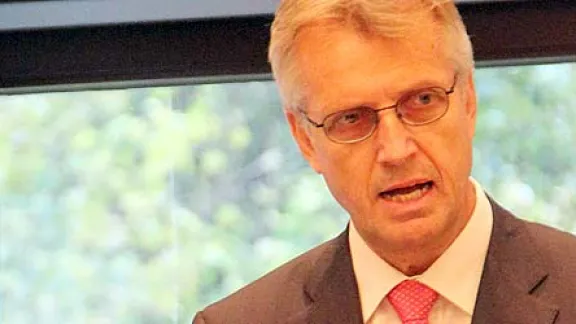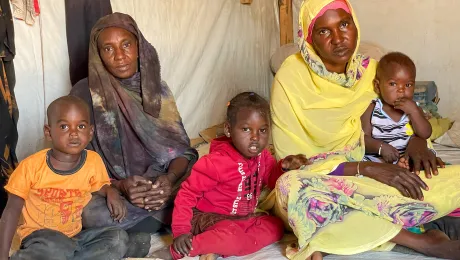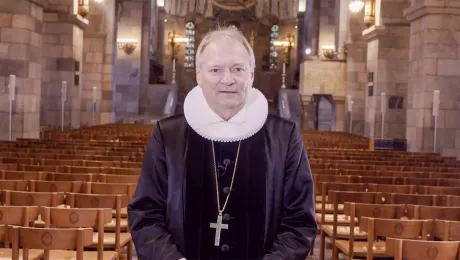
LWF General Secretary Rev. Martin Junge speaks on âReformation and Inculturationâ at the VELKD General Synod, November 2012. © VELKD
Approaching 2017 with Ecumenical Accountability
The celebration of the 500th anniversary of the Reformation in 2017 should take up the global dimensions and worldwide experiences of the Reformation, and be ecumenically accountable. The Lutheran World Federation (LWF) General Secretary Rev. Martin Junge made this appeal to German churches when he addressed the General Synod of the United Evangelical Lutheran Church of Germany (VELKD) in Timmendorfer Strand on 2 November.
Junge underlined that the Reformation had emigrated from Germany and influenced churches and cultures all over the world. Thus 500 years later, there should be a stronger perception in the original centers of the Reformation of what can be learned from this “extensive, ongoing global travel” of the Reformation.
Reformation und Inculturation
In his address on “Reformation and Inculturation” to the synod members of VELKD—a union of seven German Lutheran churches, all LWF members—Junge illustrated the different effects of the Reformation with examples from the LWF Communion.
The processes of inculturation and contextualization had led to specific Reformation accents in various countries, he noted. For example, in India, God’s incarnation in Jesus Christ was of particular importance due to the Lutheran church’s roots among the “untouchables” (Dalits).
“On the basis of their experience of being untouchable, they interpret God’s incarnation in Jesus Christ as God’s very own way of escaping untouchability,” Junge stated.
Learning from the Experience of Churches in Minority Situations
A further issue Junge raised was the experiences of churches in minority situations.
They do not just learn to assert themselves under difficult conditions, but also frequently make relevant contributions. “They no longer presuppose the ABC of Christian faith but have to offer it,” he added.
Anniversary with Ecumenical Accountability
Kurt Cardinal Koch, president of the Pontifical Council for Promoting Christian Unity, also addressed the focal theme of the Synod.
Both he and Junge referred to the joint declaration on the Reformation anniversary “From Conflict to Communion: Lutheran – Catholic Common Commemoration of the Reformation in 2017,” which is currently being completed by the Lutheran-Roman Catholic Commission on Unity.
The document, which looks at the common past and the ecumenical future of the Roman Catholic and Lutheran churches, aims to enable a common commemoration of the Reformation anniversary in 2017.
The LWF general secretary pointed out that 2017 will also mark 50 years of dialogue between the Vatican and the LWF. Such an anniversary year, he added, therefore could only be celebrated with ecumenical accountability.
(Written for LWI by Florian Hübner, public relations officer of the LWF German National Committee)


